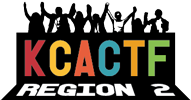The Institute for Theatre Journalism & Advocacy
The Institute for Theatre Journalism and Advocacy (ITJA) was established to assist in elevating the level of arts criticism, journalism, and advocacy; and to provide writers the opportunity to grow at the same pace as the artists whose work they review, celebrate, and interpret.
Good theatre needs people who can write well about theatre! ITJA is based on the recognition that people who write about theatre write in many different ways and in many different situations. ITJA also gives participants reserved time to talk about how to listen more intently, and, as such, the program is for more than just the curious writer. ITJA is also for stage managers, actors, designers, directors, dramaturgs, and anyone else who has a hand in making theater.
Traditional theatre criticism, of course, is still central to what many theatre journalists do, but more and more theatre journalists are:
-
-
-
- reviewing plays in different venues (papers, magazines, blogs, websites, etc.)
- writing magazine-style profiles of up-and-coming talent
- chatting with Broadway legends on podcasts
- filming backstage walkthroughs on TikTok
- analyzing works through compelling personal essays
- holding power players accountable with investigative reports
- interviewing artists and writing profiles
- writing preview stories for upcoming shows
-
-
Just as playwrights, directors, designers, and actors need chances to develop and hone their craft, theatre journalists and writers also need opportunities to explore some of the different ways they can use their writing skills to contribute to the theatre world. ITJA hopes to provide student writers with one of these opportunities.
All students from the region are eligible to participate in ITJA. A student does not need to be nominated by a respondent or faculty member. There is no pre-screening of writing or resumes. ITJA is also open to students of all disciplines and class levels. The most important attributes participants share is a love of theatre, the ability to write, and a desire to use these skills to help contribute to the development of strong theatre.
Since we recognize many students coming to the festival plan to do other things (Ryans, Design, Student Dramaturgy Initiative, being part of an invited production, etc.), we try to be as flexible as possible in accommodating each student’s schedule and needs.
There are too many different types of theater writing one can explore to try to address them all in the limited time of the annual festival. However, at our regional festival students participating in ITJA will spend a few days working with the coordinator, an invited professional theatre journalist, and other student writers. They will watch most of the invited productions, write reviews of some of these productions, and try their hand at other theater writing and reviewing assignments such as interviewing and making a pitch to an editor for a longer theatre piece. Participants will get guidance on all of these. Throughout the week, participants will engage in lively, energetic discussion of the plays and the writing they are all doing.
By the end of the festival all student ITJA participants submit a review and other theater journalism pieces that demonstrate what they see as their best work. One participant is then selected as our Region 2 winner based on the strength of their submitted materials. That selected student will then submit their portfolio of assignments to be considered as one of four students nationally to be selected to attend ITJA workshops at the Kennedy Center at the National Festival.
Students participating in ITJA are the Region 2 Festival will be working to complete three assignments for submission before the end of festival:
- A 400-500 word review of a production showcased at the Region 2 Festival
- A 100-150 word written pitch for a feature piece of arts journalism
- An interview proposal and draft questions for an artist attending the Region 2 Festival
In addition to working on these assignments, ITJA participants will attend three focused sessions led by the ITJA Coordinator and Invited Guest Journalist. Each of these sessions will explore aspects of theatre journalism, include discussion and reflection on the productions students attend at the festival, analyze methods and techniques for approaching different types of journalistic writing about theatre, and allow for workshopping and development of the three journalism assignments students work on throughout the festival. The atmosphere of these sessions is open and collegial, and we hope students leave the festival recognizing they have learned a lot and grown as student arts journalists and writers.
The most important things to bring are a passion for good theatre and an active inquiring mind.
However, ITJA participants also need to bring a laptop computer or tablet with wireless capability. Much of the writing participants will do happens during the ITJA conference sessions or independently throughout the festival. ITJA is committed to reducing the amount of paper we print and copy; participants will submit and receive drafts electronically throughout the festival. If students do not have a laptop or tablet with wireless capability, they are encouraged to see if they can borrow one from their school’s resources (school library, technology support office, or academic department). They are also welcome to reach out to the ITJA coordinator to see what other solutions may exist.
